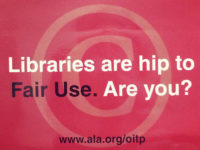Last month, I traveled to Australia and New Zealand as part of a group of experts to discuss copyright fair use and fair dealing. The trip included several public talks, meetings with government officials, a book launch on Reimagining Copyright, and the chance to discuss copyright policy directly with publishers, educators, and librarians. Videos of some of the panels are available online, including a New Zealand forum on copyright and innovation and a panel on comparative copyright limitations and exceptions at the Australian Digital Alliance annual conference.
Among the most notable aspects of the trip was the revelation of efforts by publishers and copyright collectives to mislead policy makers on the state of copyright law in Canada. While not everyone is buying it – this keynote from the Australian Productivity Commission’s Deputy Chair Karen Chester was a mic drop moment that eviscerated the publisher arguments against fair use – the efforts to mislead on the impact of Canadian copyright reform was unmistakable. For example, at one event with many publishers in the audience, I was approached by one representative who told me she was embarrassed by what her company had submitted to the Australian policy process after learning about the reality of the situation in Canada. Similarly, another Australian publisher executive who had spent years with one of Canada’s largest educational publishers, openly acknowledged that fair use and fair dealing had little to do with the challenges faced by the industry.











